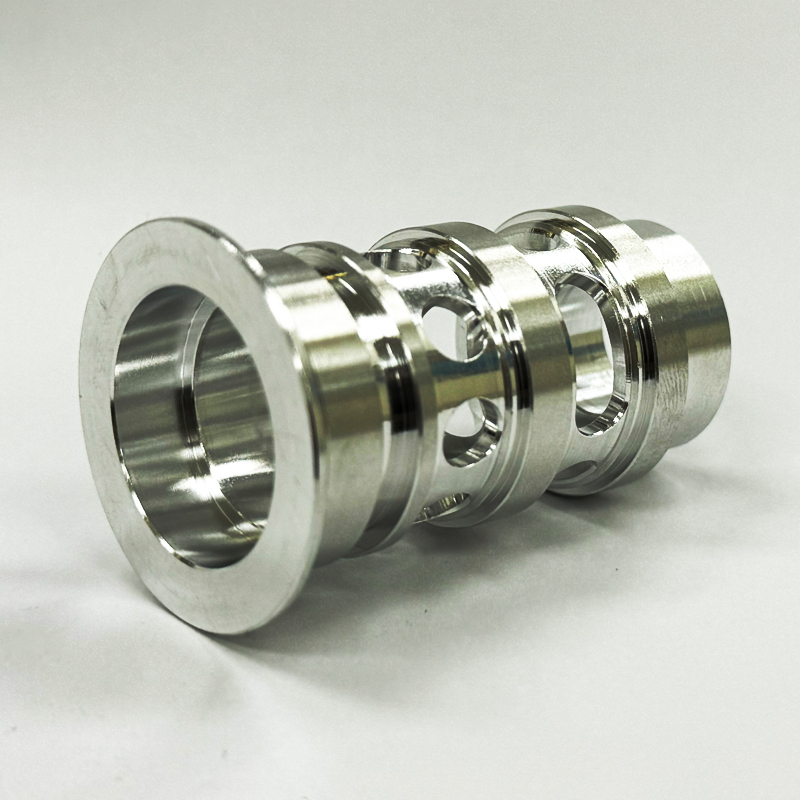| control system | HANBS self-innovate (yn 1.0 versions) |
| Servo axis number | Standard 12 axis |
| Programming method | 5-channels G code programming, each axis can be programmed separately |
| The number of knives | Group 5 |
| Maximum machining diameter | Φ15mm Φ20mm |
| Maximum machining length(50mm in guide mode) | The walking knife mode is 50mm |
Maximum axial bore diameter
(When the back shaft is 12mm and the handle is 10mm) | Φ6mm |
| Drilling arm handle diameter | ∅5(Three)∅6(Two) |
| Attack capability (spindle reversal mode) | M6 Copper |
| Dental tapping ability (doraxial delivery) | M5 Copper |
| Car thread function | Yes |
| Multi-knife synchronous processing function | Yes |
| Radial max bore diameter | Φ7mm |
| Radial max bore tapping size | M5 |
| Maximum clamping diameter of the back side spindle | ∅12mm |
| Maximum bore diameter of the back-side spindle | ∅6mm |
| Maximum tapping diameter of the back-side spindle | M6 |
| Spindle power | 2KW(With the function of score) |
| Backside platform axle power | 1.0KW |
| Maximum spindle speed(For short use only)6000rpm | 6000rpm |
| Back maximum speed (for short use only) | 6000rpm |
| Maximum removal length of piece | 50mm |
| Side power tool unit (optional) | 2 |
| End face power tool unit (optional) | 1 |
| Row knife ( 8 * 120 * 3)) | 3 |
Standard maximum number of tool installed
(5 knives + 5 drill / boring) | 10 |
High maximum number of tool installed
(5 + 5 drilling / boring + 1 back strong drill) | 11 |
| Knife size | 8*8 |
| Z1.2.3.4.5 axial stroke | 50mm |
| X1.2.3.4.5 axial stroke | 30mm |
| Backshaft itinerary | 150mm |
| X1.2.3.4.5 axial power | 400W |
| Z1.2.3.4.5 axial power | 400W |
| Z1, Z2, Z3, Z4, Z5, and Z2 axis fast-forward speed | 30m/min |
| X1, X2, X3, X4, X5 axis fast forward speed | 30m/min |
| Center height of spindle | 1010mm |
| High version input power | 7.6KW |
| weight | 1800Kg |
| Fuel tank storage | 50L |
| size | 1550*1060*1650mm |
















































